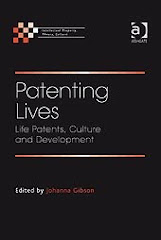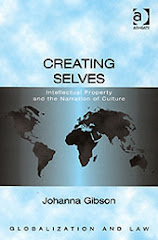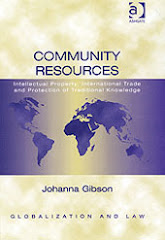
In Brussels today, Friends of the Earth Europe (FoEEurope) urged EU Environment Ministers to introduce tougher safety rules on GM foods.
In today's press release, Adrian Bebb, GM Campaigner for FoEEurope, sugg
 ests that the European Food Safety Authority (EFSA) appears biased towards the biotech industry rather than the public, in defiance of public concerns about GM crops. The FoEEurope press release reports that the European Commission has also been critical of the EFSA. In April, the Commission criticised the EFSA, calling for greater transparency and scientific consistency on approvals on genetically modified organisms (GMO). Indeed, the Austrian Presidency suggested that the EFSA exercised GMO bias, approving GM products without proper research. The Austrian Presidency announced the re-opening of the debate over safety assessment in March this year. Austria remains one of the supporters of the de facto moratorium on GM crops in Europe. However, FoEEurope reports that the incoming Finnish Presidency has closed the doors of these discussions to environmental groups.
ests that the European Food Safety Authority (EFSA) appears biased towards the biotech industry rather than the public, in defiance of public concerns about GM crops. The FoEEurope press release reports that the European Commission has also been critical of the EFSA. In April, the Commission criticised the EFSA, calling for greater transparency and scientific consistency on approvals on genetically modified organisms (GMO). Indeed, the Austrian Presidency suggested that the EFSA exercised GMO bias, approving GM products without proper research. The Austrian Presidency announced the re-opening of the debate over safety assessment in March this year. Austria remains one of the supporters of the de facto moratorium on GM crops in Europe. However, FoEEurope reports that the incoming Finnish Presidency has closed the doors of these discussions to environmental groups.Previous posts, including the recent post on the Eurobarometer on biotechnology, have reported that European citizens remain concerned about the introduction of GM crops in Europe, despite an overall confidence in biotechnology as a whole. Tomorrow, in Luxembourg, environment ministers are to discuss new proposals to address the approval of GM products.
Co-existence of GM crops with traditional and organic systems of agriculture remains a critical issue in Europe, as reported here previously in Co-Existence and Co-existing: Disharmony? One of the important aspects of this debate in Europe is not only the cultural context for European agriculture, but also the commercial viability of organic markets.
However, increasingly, the commercial value of organic is being reported in other jurisdictions. US consumers are also becoming "greener," according to a report, by Brad Dorfman, from the Reuters Industry Summit in Consumer and Retail held last week. While GM continues to be associated with risks to the environment, such "greening" will arguably include similar choices with respect to GM food, as currently seen in Europe. Indeed, this comes at the same time as the recent decision
 in Santa Cruz County, California, to ban GM crops, as discussed in a previous post. It was suggested in a report in the San Francisco Chronicle online that the Santa Cruz County Supervisors were responding to Monsanto's purchase of Seminis, the world's largest vegetable and fruit seed company, prompting concern that the company would be extending GM technologies into crops traditionally grown in the Californian county.
in Santa Cruz County, California, to ban GM crops, as discussed in a previous post. It was suggested in a report in the San Francisco Chronicle online that the Santa Cruz County Supervisors were responding to Monsanto's purchase of Seminis, the world's largest vegetable and fruit seed company, prompting concern that the company would be extending GM technologies into crops traditionally grown in the Californian county.And non-GM is said to be "booming" in the developing world as well, as reported by Reuters India. Indian soybean meal exports are expected to double, attributable to demand and competitive prices and because "Everywhere Indian meal was better accepted this year because it is non-genetically modified and of good quality," according to the Chairman of the Soybean Processor' Association of India (SOPA), Rajesh Agrawal.

In the United States again, the Foundation on Economic Trends (FOET), founded by economist, Jeremy Rifkin, released a white paper earlier this month, describing the "obsolescence" of GM and the growth of technologies compatible with agroecological approaches, blurring the common claims of "technophobe" levelled against those resisting GM crops. The white paper outlines the importance of marker-assisted selection (MAS) as the "new" agricultural technology, "within the context of a broader, more holistic, agroecological approach to farming."
This technology is being applied in research in Australia, in the case of wheat. In my
 homeland, research into non-GM wheat breeding technology is, according to an article by the Network of Concerned Farmers, leading the way. Research Director of the Cooperative Research Centre for Value Added Wheat, Dr Bill Rathmell, describes the importance of marker assisted selection in realising non-GM approaches to breeding technologies. The story also notes the "strong economic promise" of this research, as it was described in a recent study by the Australian Allen Consulting Group.
homeland, research into non-GM wheat breeding technology is, according to an article by the Network of Concerned Farmers, leading the way. Research Director of the Cooperative Research Centre for Value Added Wheat, Dr Bill Rathmell, describes the importance of marker assisted selection in realising non-GM approaches to breeding technologies. The story also notes the "strong economic promise" of this research, as it was described in a recent study by the Australian Allen Consulting Group.It seems that non-GM research is proving popular not only with consumers, but also with funders and research institutions, responding to what appear to be growing commercial advantages.



2 comments:
I've blogged a little about the issue of marker assisted selection. It is definitely more benign sounding than genetic modification of food.
Wonderful and informative web site. I used information from that site its great. Generic celexa from canada Peugeot facelift 307cc se hdi 136 cabriolet Currency trading exchange rate currency conversion Differences between financial and managerial accounting Oxycontin dosages umaxppc
Post a Comment